The best in poetry (and poetic things), this week with Will Willingham.
1 Art
As an insurance adjuster, I find the term “perfect storm” an unfortunate combination of words, unless we simply mean the sort of storm which generates a lot of business for me but in which no one is hurt and only easily replaced property is destroyed. Some might think the tropical storm aptly named for one of my sons and currently threatening to become a hurricane and swamp the GOP National Convention next week is just too perfect.
Artist Virginia Bradley creates a stunningly perfect storm in her new exhibit. “A Fragile Grace” is a series of paintings juxtaposing the destruction of the Japanese tsunami with the beauty of Venice, a reflection of the artist’s “fascination with impossible places.”
Meanwhile, our very own wild juxtaposition of rocket fuel and chaos, photographer Claire Burge, recently flooded the streets of Tweetspeak with her images of Venice, sans the haunting tsunami overtones.
2 News
When I first opened a Twitter account, having followers I didn’t personally know made my palms sweat, like someone was circling my house. So the idea of purchasing Twitter followers to make you or your brand appear more popular escapes my comprehension. But at least they don’t cost much — some sites will sell you 1000 followers for a paltry five bucks, others for a penny apiece. They’re available in both flesh-and-blood and bot models. And you’ll never have to wine and dine them to keep them around.
Don’t go around thinking that you can avoid having phony friends just because you stay fenced in the Facebook playground. Earlier this month, Facebook reported over 83 million fake profiles. Some suggest nationalizing the social media giant to help restore public confidence. Sure. That should work.
Listen, if you follow us on Twitter and Facebook, you can be sure there is a human face just behind our deep red avatars. And now, we can help you cut through the bots and fake friends straight to the best content with Tweetspeak’s daily digest on Twitter. And if you’d like to be sure you’re not mistaken for a bot, you might check out this great guide to writing a better Twitter bio from Jane Friedman.
3 Publishing
A few years ago, I wandered the handful of stores in of my small whistle-stop’s downtown in search of bookends. The bewildered clerk in the office supply store finally found a dusty pair nestled behind an old rotary phone. I was torn between feeling more disturbed at store employees’ unfamiliarity with the item or my fellow citizens’ lack of need (and accompanying lack of books). So I smiled knowingly as Cathy Day recounted the difficulty she had in finding bookshelves for her home. Cathy articulates a need for “literary citizenship” to cultivate a populace that cares about reading. Among other suggestions, not surprisingly, she recommends that “if you want to publish books, buy books.”
4 Business
Let’s be clear about something. If the Top Ten Poetic Picks were not listed in numeric order, I could not find my way to the bottom of the list. I get lost in my own hallway in broad daylight, and I don’t drive out of town without at least one GPS and directions printed from Google Maps. But the funny thing is that nine times out of ten, when I get lost I’ll wind up somewhere I need to be another day, if I can just remember how I got there. John Caddell is a curator of mistakes, and urges us squeeze every last drop of goodness from our latest epic fail. Did you know that brilliant discoveries like vulcanization of rubber and artificial sweeteners originated with mistakes?
[If] we think about where mistakes can take us, it’s to the margins, to the unknown, the unexplored… And what can we learn there? We can see that some of our cherished assumptions are invalid, and that there are opportunities we never imagined.
5 Creativity
A long time ago, in a galaxy far, far away, there was neither Pinterest nor Evernote, and creative folks used a curious tool called a commonplace book, activated by ink and paper to document a “traceable path in [their] growth.” The Daily Beast’s Kelsey McKinney features beautiful excerpts from the commonplace books of Lewis Carroll and Sara Coleridge, among others. If the doodles in my notebook were even a pen stroke of one of Robert Southey’s sketches, I might not feel bad about the writing I wasn’t doing.
Can you tell I’m listening to the soothing jazz stylings of Thelonius Monk while I shuffle this week’s links? Galley Cat has an inspiring list of Spotify playlists for writers with a little something for everyone, plus a shout-out for Maria Popova’s new Literary Jukebox, which features a daily literary quote paired with a musical selection. The jukebox is part of my regular morning routine.
Thanks to Seth Haines, Tweetspeak is also standing by to help you find the best musical inspiration. His new thematic playlist brings our August Rain together with your book spine, CD and vinyl cover poetry all month long.
6 Write-It
It seems a Tweetspeak Top Ten is hardly complete without a certain poet’s appearance. After defusing that whole you-need-a-new-attitude-in-Louisiana debacle, we understand Emily Dickinson made her way to a writer’s workshop and submitted a piece for critique. If you think she had a bad attitude before, just wait until she gets her poem back. “Emily, nice language here. But I end this poem feeling confused.”
“There are innumerable ways to write badly. The usual way is making sentences that don’t say what you think they do.” That’s just one (okay, it’s two) of Several Short Sentences About Writing from Verlyn Klinkenborg featured at Brain Pickings this week. We’ve passed this along to Ms. Dickinson in advance of her next workshop.
7 Poems
Storms, both perfect and imperfect, always lend the opportunity for reflection. In “Noah Naked, ” poet Marcus Goodyear considers that even as the storm gives rise to contemplation, the rising waters carry thoughts away.
Noah Naked
that hit Corpus Christi, Christ’s body in pain
on the Texas coast. Flood waters and clay
rose above office desks until all our days
drowned in the sludge. Every storm is an act
of God, no more surprising than the last act
(read the rest of “Noah Naked”)
When the water recedes, sometimes all that remains are stones, some transported miles away from where they began. Carolyn Forché reads her poem “Museum of Stones” recounting the stones in the collection she kept for a friend.
Museum of Stones
paving stones from the hands of those who rose against the army,
stones where the bells had fallen, where the bridges were blown,
those that had flown through windows and weighted petitions,
feldspar, rose quartz, slate, blueschist, gneiss, and chert,
fragments of an abbey at dusk, sandstone toe
of a Buddha mortared at Bamiyan,
stone from the hill of three crosses and a crypt
(read the rest of “Museum of Stones“)
8 People
A lot of writers, it turns out, got their start writing ad copy. Dr. Seuss, in fact, did some work illustrating ads for cosmetics and Ford Motors and making films and pamphlets for the U.S. Army during World War II. And now folks praise his One Fish Two Fish writing style as a model for driving search engine traffic. With my apologies to my managing editor, I will not write it in a box, I will not write it with a fox. Not in a house. Not with a mouse. I cannot write it, Sam-I-am. Even if Dr. Seuss promises it will improve my SEO.
9 Education
It’s back to school season, for some of us, the happiest time of the year. In that spirit, Poetry Foundation provides a collection of poems about teaching and teachers. My favorite, “A Teacher’s Lament” by Kalli Dakos, begins with this line:
Don’t tell me the cat ate your math sheet,
And your spelling words went down the drain
The mix of boredom, anxiety and mischief evident on the faces of these students in a collection of classroom portraits from around the world is all I need to understand that coming lament.
10 Sound n Motion
Some folks live more hidden than others, but it seems most of us to greater and lesser degrees carry a part of us deep inside, letting it out only under carefully controlled circumstances, much like Charles Bukowski’s blue bird. This animated adaption of his 1992 poem “The Blue Bird” by Monica Umba will move you.
it’s nice enough to
make a man
weep, but I don’t
weep, do
you?
Photos by Claire Burge. Used with permission. Post by Will Willingham.
______________________
- Earth Song Poem Featured on The Slowdown!—Birds in Home Depot - February 7, 2023
- The Rapping in the Attic—Happy Holidays Fun Video! - December 21, 2022
- Video: Earth Song: A Nature Poems Experience—Enchanting! - December 6, 2022
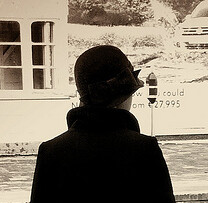
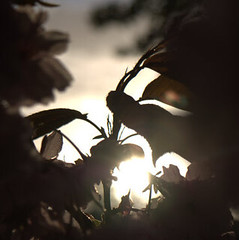


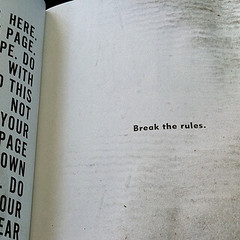
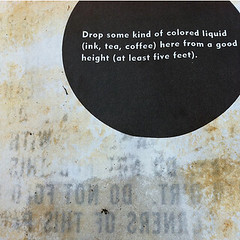




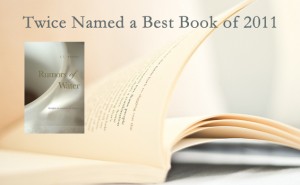
Maureen Doallas says
No matter how many times I see it, I’ll still be up to see ‘Bluebird’ again.
Great lineup this week.
Will Willingham says
Thanks, Maureen. You know, I’ve lost count of how many times I’ve watched it.
I think I’ll go do it again… 🙂
Megan Willome says
I did not know that poem, but it’s obviously great, and the and the animation is so good, too. It reminded me of another poem, “Tshotsholoza” by Sarah Kay, because of the bird thing. I wanted Charles’ blue bird to be let out and then let’s see what happens.
L. L. Barkat says
As a dear Team member of ours would say, “Brilliant.”
I just loved laughing through this. You are so funny 🙂
And I’m thinking you could create a line of custom GPS products, for people who need direction for all kinds of unexpected things 😉
(can you do an infographic on that, btw?)